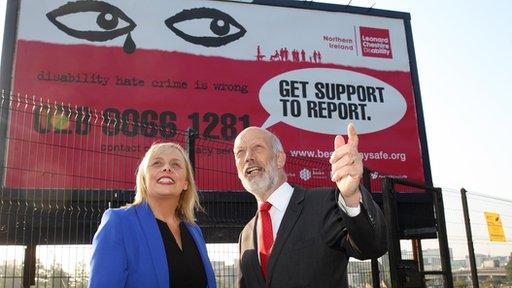PSNI's #Voices campaign targets disability hate crime
- Published
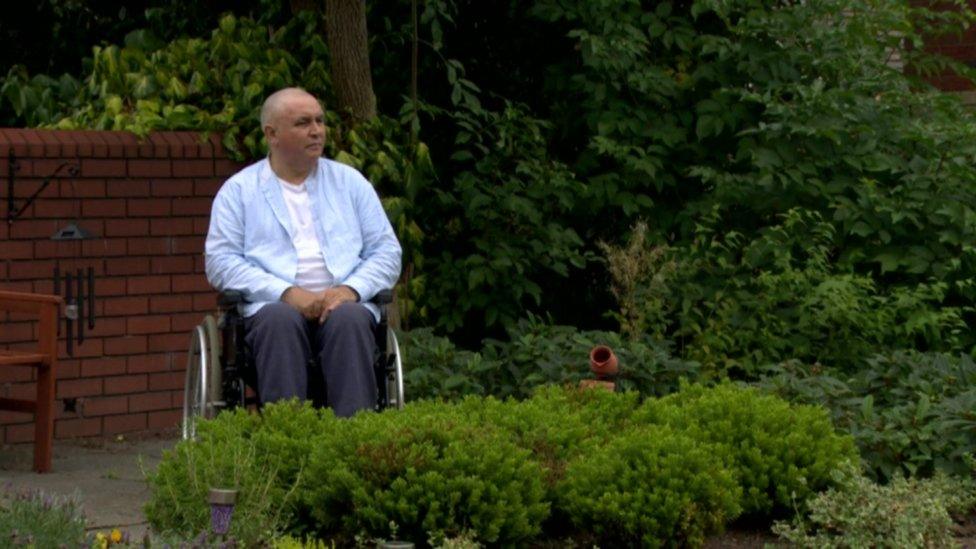
The PSNI hope to tackle disability hate crime with a new campaign
A campaign to highlight hate crimes against people with disabilities has been launched by the police in Northern Ireland.
The campaign is aimed at encouraging victims of hate crimes, as well as witnesses, to report them to police.
Police said they have dealt with 66 incidents in the past five months where the motivation was the victim's disability.
The attacks have ranged from name calling to assault and criminal damage.
So far, none of the offenders have been prosecuted.
Targeted
The PSNI and Leonard Cheshire Disability have jointly established the first disability hate crime advocacy service in the UK, which aims to help victims of crime access the support they need.
As part of the campaign, the PSNI launched the second in a series of short films entitled #Voices, external - aimed at increasing awareness of the impact of all forms of hate crimes.
In the latest video, a victim of disability hate crime speaks out about the psychological and emotional damage he suffered when teenagers targeted him and his home.
Michael Bailey, a 60-year-old father-of-three from west Belfast, has used a wheelchair for the past 10 years.
He was assaulted a number of times on the street near his home in the Poleglass area and has no doubt he was targeted because he is disabled.

A victim's testimony: Michael Bailey
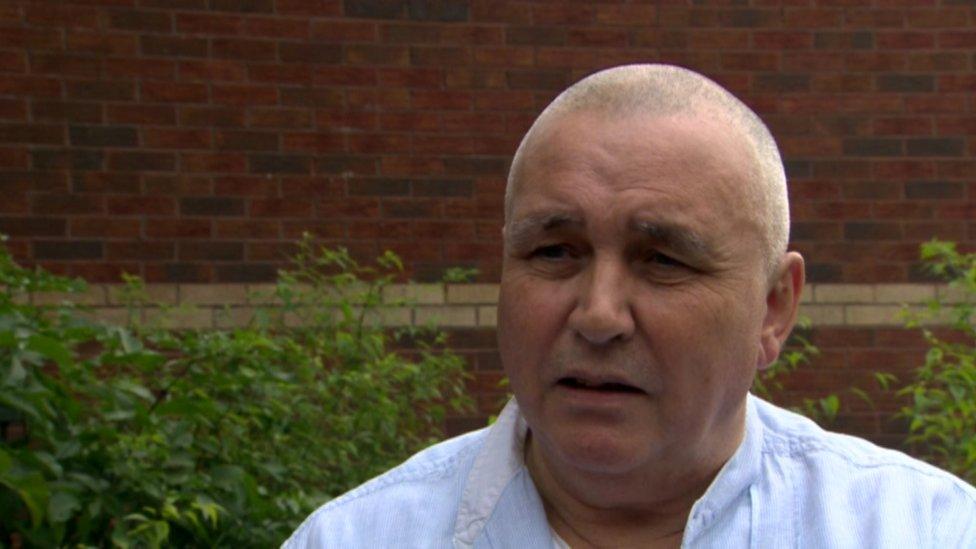
Michael Bailey said he is afraid to turn on the lights at home at night
I often preferred to sit in darkness and pretend I wasn't home.
I kept the lights off because I was pretending I wasn't in, because if they knew I was in the house, they would attack me.
They would bang my windows and doors, throw bottles at the house, and block my way when I tried to get in or out.
They would stand on the path and shout at me and spit at me.
One time I was coming home from a meeting and a group of teenagers tried to throw me out of my motorised wheelchair because they wanted to steal it.
They only dispersed when I activated an alarm given to me by my wife.
Another time I was punched in the face while waiting at traffic lights to cross a road.
My wife wasn't aware of many of the attacks because they happened while she was at work and I didn't want to worry her.
I also used to lie to my daughter and grandchildren to prevent them coming to the house.
I didn't want them to get hurt in any way. I didn't want them to see what was happening, I was protecting my grandkids and my daughter.
I was left feeling unsafe in my own home, and on the street. Everyone should be able to feel safe, but I just didn't.
Where I live now is completely different. I feel safe.

Responsibility
The police officially recognise six different kinds of hate crimes:
Sectarian
Racist
Faith and religion
Homophobic
Disability
Transgender
Attacks with a sectarian or racist motivation account for the vast majority of recorded hate crimes in Northern Ireland, followed by homophobic attacks.
According to official figures, one in five people in Northern Ireland is registered as disabled.
The police, and those who work with victims, said they believe the number of crimes against people with disabilities is much greater than what is reported.
Supt Paula Hilman, the officer leading the #Voices campaign, said there is a collective responsibility on all parts of society to protect vulnerable people.
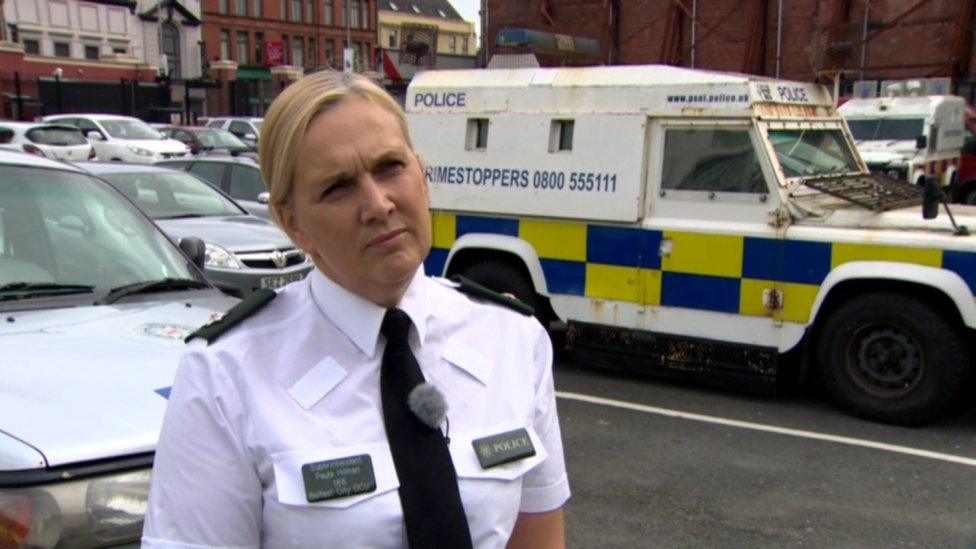
Supt Paula Hilman said victims must be encouraged to report hate crimes
"I would encourage everyone to listen to what Michael says about the harrowing impact the physical, psychological and verbal abuse had on his life," she said.
"Behind every one of the statistics about hate crimes is a victim like Michael.
"We need to encourage victims to have the confidence to report hate crimes against them to the police, and we also need people in the community who are aware that these crimes are being committed to report them.
"To bring offenders to justice, to help, we need victims' co-operation, we need people to speak to us about what's happened, but also for the wider community to tell us what's happening."
'Reach out'
Shane Gorman, the advocate employed by Leonard Cheshire Disability, says it is vital for victims to report crimes and to help the police prosecute those involved.
"We believe we are only scratching the surface of this issue at this time," he says.
"Victims of crime don't come forward for a variety of reasons such as fear, intimidation or maybe a previous poor experience.
"Often victims of disability hate crime may want to come forward but they can't due to additional difficulties such as communication barriers, access issues or mobility issues, so as a service we work with the PSNI to try to remove these barriers to make the criminal justice system as successful as possible for disabled people.
"Victims should not be suffering in silence. It's important that they reach out for the support that's available."
The PSNI says anyone who wants to report a hate crime should ring the non-emergency number on 101, contact Crimestoppers anonymously on 0800 555111, or visit their website., external
- Published19 October 2015
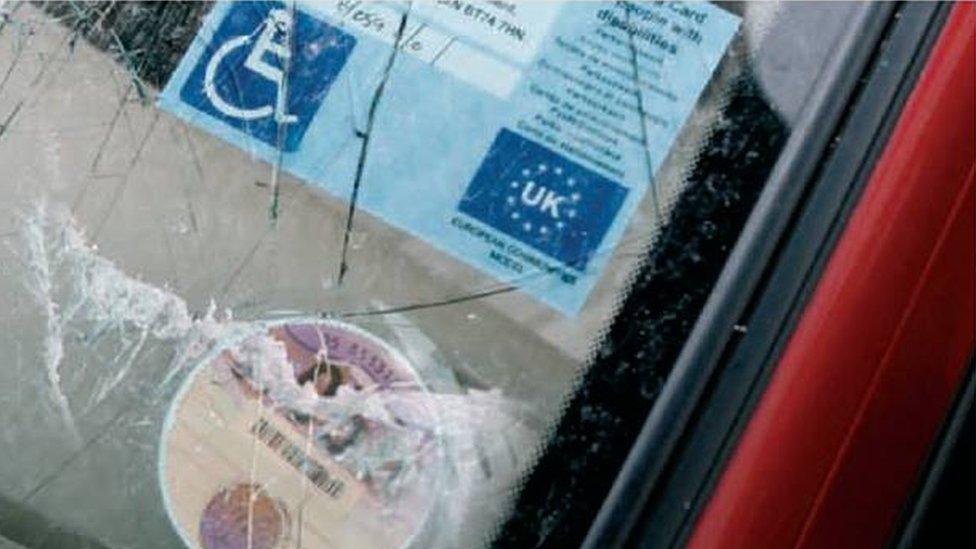
- Published15 September 2014
